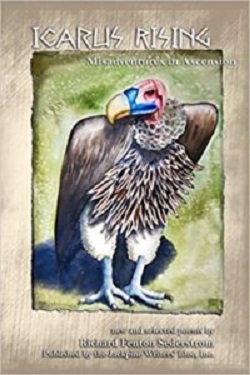I
The elephant finds itself
on what it doesn’t know is a railroad track.
Hearing the sudden noise
and feeling the vibration in its feet,
intelligent in its ignorance,
the elephant moves toward safety.
*
The human finds itself
on what it knows to be a railroad track.
Because of its intelligence,
and knowing that this is a dangerous
place to be, the human thinks, not
“I think I’ll step over where it’s safe,”
but of the possibilities
of engaging in anthro-cleverness,
the danger!—Thunder Road:
“I wonder how far I can walk backward on this rail?
Facing away from the train?
Awwwriiiight!!”
II
[two witnesses opine]
1. “Here’s an idea!
If we can’t get lithium from Earth,
how about the moon?
I mean, you could build, like,
a sky train with bendy tracks, and …
uh … what’s lithium?”
*
2. “Hey! Anybody here see Interstellar?
It’s got these wormholes.
Couldn’t we get water from that planet
with the big waves?
And use a wormhole and build maybe
a real big like sewer-pipe thing?—
and … uh … like … you know, that … ”
III
Intelligence is useful
for teaching the elephant
the foresight to survive.
Cognition is useful
for teaching the human
the negation of intelligence,
self-delusion being the best way
out of a situation rendered,
like black ice greased, impossible
because of the delusionary
inventiveness that gleams,
dazzling the human mind.











